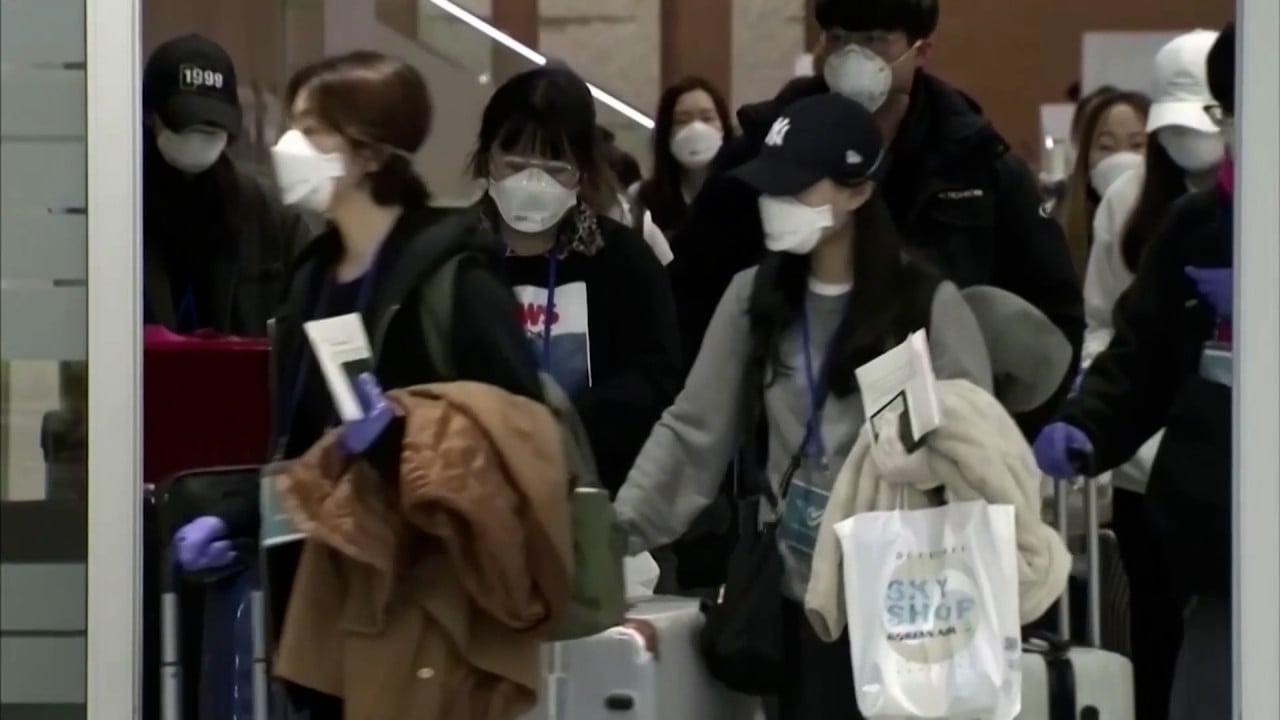
Covid restrictions on Chinese travellers ‘throwing cold water’ on South Korea’s tourism industry
- South Korea will require Chinese visitors to take PCR tests upon arrival and turn in negative results taken 48 hours before entering the country
- Chinese tourists accounted for the largest proportion of inbound travellers to South Korea before the Covid-19 pandemic
The South Korean government’s newly enforced border controls on Chinese visitors amid a Covid-19 resurgence in China are drawing mixed responses, since the new measurers come as the tourism industry has been waiting for the return of tourists from the world’s most-populous country.
Chinese tourists accounted for the largest proportion of inbound travellers to South Korea before the Covid-19 pandemic.
According to the restrictions unveiled on Friday, South Korea will require Chinese visitors to take PCR tests upon arrival and turn in negative results ― negative PCR test result taken 48 hours before entering the country or rapid antigen test (RAT) test result taken within 24 hours before entry ― starting from January 5.
Also, the government is limiting Chinese travellers from entering Korea by not issuing short-term visas for Chinese nationals in January unless it is for diplomatic, business, or humanitarian reasons. Plus, planes from China will only be able to land at Incheon International Airport.
On Monday, Korean Air said it will halt its plan to increase flights to China this month, following the government’s new guidelines.
The government’s latest border control measures on China could “throw cold water on the industry’s hopes for a recovery,” an official at Mode Travel, a local travel agency, told The Korea Times.
The company recreated a special team handling travel to China and has also been preparing for the return of Chinese tourists, he said.
However, another source said the tourism industry “didn’t expect a sudden inbound travel recovery from China in the near future, regardless of the government restrictions, because Chinese tourists tend to visit Korea in the spring and not during winter.
Chinese tourists are eager to travel, but are Asian airlines ready?
“A few months of delay in Chinese tourists’ influx is less likely to seriously damage the industry,” she said despite admitting that if the border controls on China go on until the busy season in spring, it could become a concern for the industry.
In the wake of the Chinese government’s announcement of eased lockdown measures, reservations for outbound travel to South Korea spiked on December 26.
China’s online travel website, Tongcheng Travel, said that the search volume related to outbound trips increased dramatically right after the Chinese government’s announcement. It includes 8.5 times more searches for flights, while searches related to visas surged 8.5 times, and South Korea is among the most searched travel destinations, including Japan and Thailand.
According to the Chinese travel agency, Ctrip, the search volume for flights to South Korea increased by 158 per cent a day after the Chinese government’s announcement. The most searched destinations included Seoul, Busan and Jeju Island, which increased by 177, 165, and 46 per cent, respectively compared to the day before. The reservation rate for flights to Korea increased 400 per cent on December 27.
The Korean tourism industry has been anticipating the return of Chinese visitors, who accounted for one third of foreigners visiting Korea before the pandemic. China was the top revenue source of the Korean tourism industry as more than six million Chinese people came here to visit annually. However, the figure dropped to around 170,000 last year, according to the Korea Tourism Organization (KTO).
Places with Covid rules for China travellers
Meanwhile, the number of new Covid-19 infection cases originating from China has been increasing. In November, China contributed only to 1.1 per cent of new cases with 19 people out of 1,750, but the figure went up to 14.2 per cent to 253 new cases in December, according to the Central Disease Control Headquarters.
Several countries including Korea have taken border control measures against China.
Japan, which ended post-arrival PCR mandates on foreigners in October resumed the regulation within the day of the Chinese authorities’ announcement, exclusively to the Chinese arrivals. France and the US require all travellers from China to present a negative test result before departure. Korea has taken both these measures against passengers coming from China.
“The fact that we need to be ready [for the return of tourists] remains unchanged … Waiting for the good news, we will be working for ways to better welcome travellers,” the employee said.
Additional reporting by Reuters


